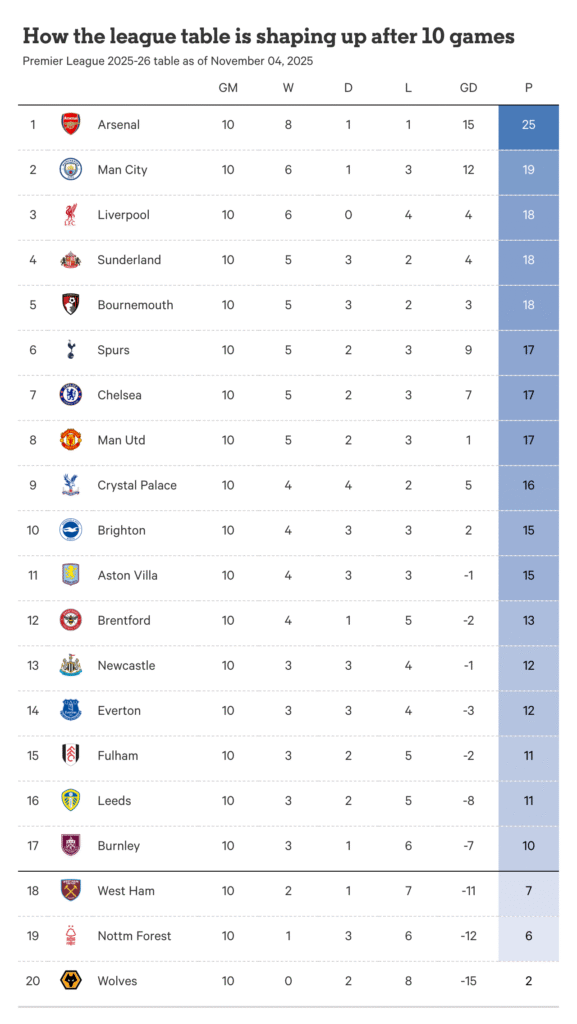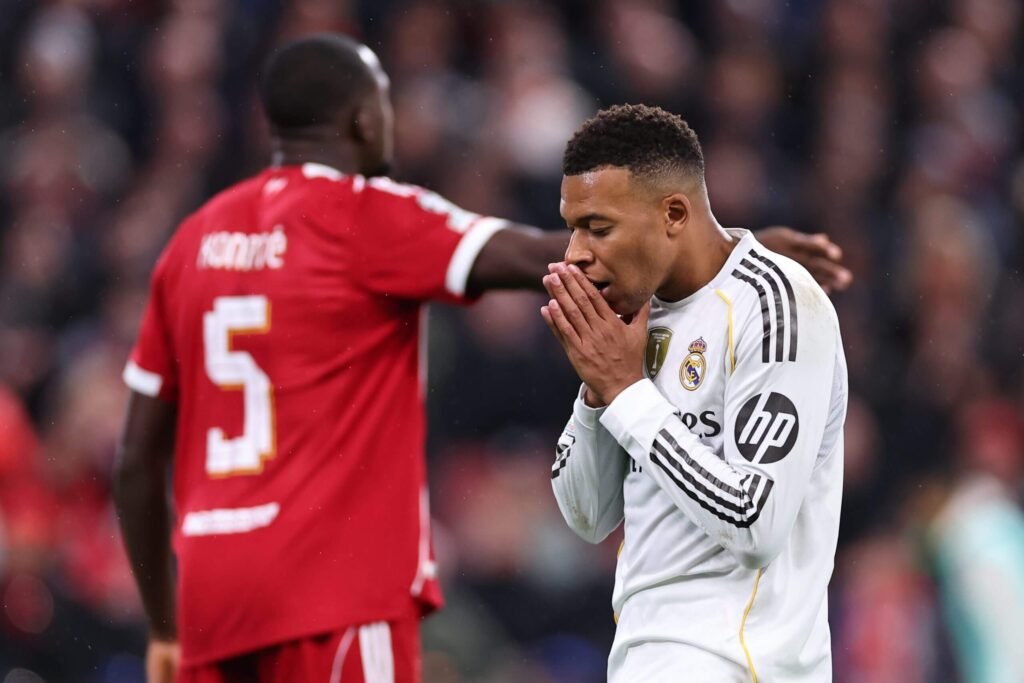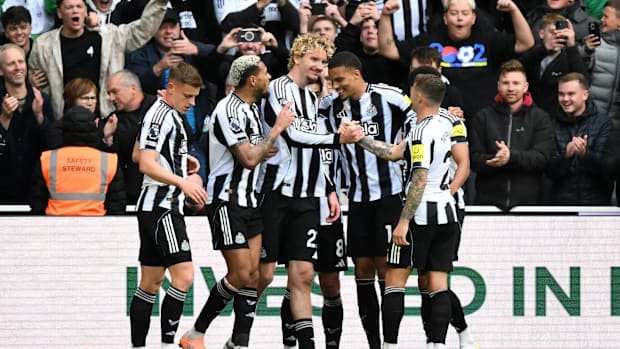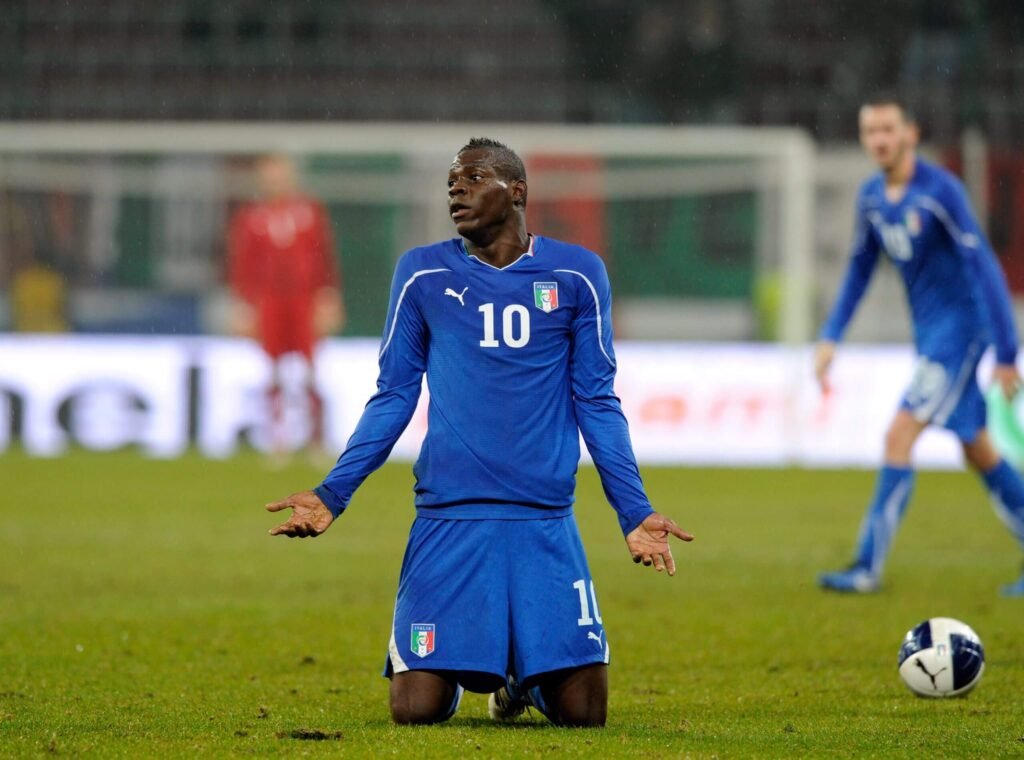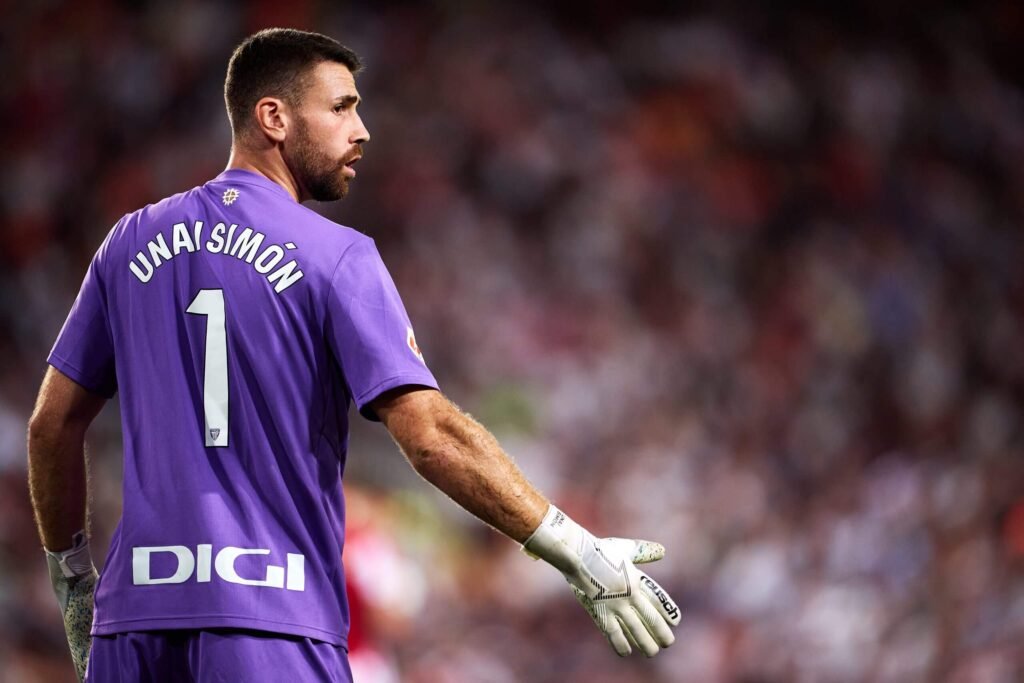Since February 2025, part of St. Pauli’s matchday routine has been missing.
Das Herz von St. Pauli, a popular fan song, had been played at the Millerntor Stadium for two decades. But no more. Earlier this year, an investigation by the club’s museum revealed that the song’s writer, composer and singer had all been entangled with the Nazi party and the propaganda of Joseph Goebbels.
The playing of Das Herz von St. Pauli — the Heart of St. Pauli — was suspended in February, and has not been heard since. For Germany’s foremost left-wing club, it has been a difficult, fractious and sensitive period.
That is not unusual. The Germans have a word — Vergangenheitsbewaeltigung — which means “coping with the past”, and 80 years after the Second World War ended, the issue of who did what during it and how willingly remains alive, as does the conversation about how those people — and their work — should be judged.
Celina Albertz is a political and media scientist who works for St. Pauli’s club museum. She led the research into the song, which — inadvertently — put her at the centre of a local issue that has caused sharp division.
“We have a museum podcast,” she tells The Athletic, “and on it we find a topic, research it, and then discuss it together.
“Someone wrote us an email asking us to do something about St. Pauli and the city’s harbour, because of the closeness and the history. And there’s a line in the song about it — der hafen, die lichter (the harbour, the lights) — and so I thought looking into the background of the song would be interesting.
“I started with Hans Albers.”

St. Pauli are regarded as a left-wing club (Stuart Franklin/Getty Images)
Albers was a prominent German theatre and film star, before, during and after Nazi rule. He was born in Hamburg. Many of his films were set in that port city, including in the waterfront district of St. Pauli. A few years before his death in 1960, Albers starred in the film Das Herz von St. Pauli and performed the song of the same name within it.
That version is not the one later heard for years at the Millerntor. That was a punk cover version, performed by local band Phantastix & Elf. But “Albers made the song famous,” explains Albertz, “and that’s why most people know it.
“I took the classic route: I went to the library, and read books about his career after the war.”
In 1944, Goebbels, the Reich Minister of Propaganda, compiled a then-confidential list of protected people. Among them were actors and musicians who he deemed too valuable to the propaganda effort to be risked on the front lines of the war. No political opponents were allowed on die Gottbegnadeten-Liste, nor were any Jews.
Albers was on it, so was Michael Jary, a famous musician of the era, who was Das Herz von St. Pauli’s composer. Both were prominent cultural figures, meaning their inclusion was not a surprise. Neither chose to be on the list, but both opted to participate in propaganda, thereby supporting the regime.
Jary was a Catholic born in Oberschlesien (then part of the German Reich, but now in Poland) and was originally known as Maximilian Jarczyk. He changed his name to evade anti-Jewish bullying and damage to his career. Jarry’s songwriting partner, Bruno Balz, was arrested for homosexuality in 1936 and then, following his release, captured, imprisoned, and tortured by the Gestapo in 1941. He was only released after Jary petitioned Goebbels, insisting he was unable to write songs without his partner.
Albers’ position was similarly complicated.
“He had starred in propaganda movies, but that’s not black and white,” Albertz explains. “On the one hand, he made negative remarks about the Nazis and was never seen alongside high-ranking party officials; on the other hand, he kept making propaganda films, ignoring the devastating consequences. He considered himself a non-political person.
“When the Nazis demanded that he end his relationship with his Jewish girlfriend, Hansi Burg, they officially separated, but he continued to see her in secret. But when she had to flee Germany after the November Pogroms (Kristallnacht or Night of Broken Glass in 1938), he stayed in Germany and continued his career.
“Still, that’s all I thought I was dealing with.”
It was not. Albertz continued reading, and kept pulling at threads:
“One book about Hans Albers mentioned the song and that the lyrics had been written by Josef Ollig in the 1950s. So, I had that name: Josef Ollig.”
Ollig did not appear on Goebbels’ list, but he was a troubling figure.
Before 1933, he had been a journalist for a Hamburg newspaper that was supportive of the Nazi regime. During the war, he was drafted by the Luftwaffe (Germany’s air force) in 1940, later working as a kriegsberichter — a war correspondent.
“But that’s really not the right word,” Albertz says, “because it makes him sound like a journalist, as someone who followed journalistic standards. And that’s not what kriegsberichter really were. After the First World War, right-wing nationalists pushed the idea that Germany had not lost because of the military, but rather because the soldiers were let down on the home front. Adolf Hitler wrote in Mein Kampf that he believed Germany’s defeat was at least partly a failure of propaganda. That the people at home had not been properly mobilised.

Hans Albers (left) stars in the German film Und Uber Uns Der Himmel (Hulton Archive/Getty Images)
“It meant that the Nazis wanted to control all the information coming back from the front. Ollig didn’t write articles — that would be a journalistic term — but he wrote reports that were intended to convey a very specific image of the war to the German population.
“He would write his report, then it would go to the propaganda ministry, and from there be distributed to different newspapers around the country.
“There was a spectrum. There were war reports that were actually relatively neutral in their language. And then there were others that were filled to the brim with propaganda.
“There was a choice: you could put a lot of propaganda where you didn’t need to, or you could try to find as much balance as possible. And there are studies that deal with the thematic focus and the propagandistic penetration of war reporting. Even compared with other kriegsberichter, he was on the propaganda-heavy end of the spectrum.”
It began a difficult period — for St. Pauli, for Albertz, and for many fans.
Reacting to the investigation, the club announced the temporary suspension of the song in February. Oke Goettlich, their president, said in a statement that “we absolutely know and understand that the song has a very strong emotional significance for many people.
“This may remain the case on a personal level, but an anthem in a stadium has a special function: it’s meant to bring people together; it’s meant to be a shared and unifying moment. Given the debate surrounding the song, such a moment cannot be created at this time, as many members and fans have made it clear that they no longer feel comfortable with the song.”
Ahead of the first game following the suspension, at home against Freiburg a week later, Goettlich was booed by a minority within the crowd when he took to the pitch to explain the decision.
Sven Brux, an iconic figure within the St. Pauli community and now the club’s head of security, took the microphone in response: “We’re all attached to the song, including me. But an anthem in a stadium doesn’t work if 20, 30, or 40 per cent are against it. We need to discuss this in a debate that has only just begun.”
At the end of the season, in June, research authored by Celina Albertz and Peter Roemer, a historian, was published on the St. Pauli website.
The report itself made no recommendations about what happened next, but an event was planned for the beginning of July, during which club members — in person or online — could hear Albertz and Roemer present the findings and then debate the next steps.
Albertz remembers the occasion positively. The club were supportive and complimentary of her research, and while there was plenty of discussion and disagreement about exactly what the response should be (retaining the music, but changing the lyrics was one suggestion), she faced only constructive criticism for her work.
There are no plans for the song’s reinstatement.
Explaining that decision, club spokesperson Patrick Gensing told The Athletic: “With the support of the FCSP Museum, St. Pauli conducted a profound review of the case, presented the results of the scientific investigation for discussion, and, based on these discussions, decided to no longer play the song as the anthem at Millerntor.
“It is important not to get carried away by emotional issues, some of which are heatedly discussed on social media, but to proceed with the required care and consistency.”
At the beginning of the current season, the club announced they would spend the year playing new songs on matchdays to see if attachment to an alternative could develop organically. That rotation continues.
But while the majority remain supportive of Albertz’s work, the response is not unanimous — particularly online.
Christopher Radke, one of Albertz’s colleagues at the museum, provides some context.
“When people speak about the other side of national socialism, not the victims, but the perpetrators, they sometimes describe it as if a spaceship landed in Germany and let 5,000 Nazis out who then took over the government,” he says. “Conversations with today’s grandchildren can get very nasty and very harsh, even now. There are people who say, ‘Oh, my grandfather wasn’t a Nazi, he was just following orders’.”
Albertz agrees.
“Right into the late 1970s, most families just didn’t talk about it,” she says. “There was no societal debate, not much reflection, or if only to say, ‘We were victims, too — we lived in the cities that had been destroyed, and we lost fathers, brothers and sons and suffered the consequences of the war as well’. That’s how the German majority spoke.
“Many people ignored their own responsibility and culpability to live with what happened. And that didn’t change until the younger generation started questioning their parents and grandparents.”
At times, the saga around Das Herz von St. Pauli has been uncomfortable. Some have lashed out at Albertz: “People have said, ‘Why can’t you just leave it alone?’, or, ‘What about your family?’. Well, I did that. I researched my own family history, and that was also very difficult. I had hoped that I was going to find different things than I did. I had difficult talks with my grandparents as well.
“But I can recommend doing that — for people to talk to their own relatives, research their own family histories, and to ask the hard questions. Many Germans today — around one-third — believe that their ancestors were part of the resistance or helped Jews. Historical research shows this cannot be true. In all likelihood, only about 0.3 per cent of Germans helped those who were persecuted by the regime.”

There is an emotional connection to the song for some St. Pauli fans (Stuart Franklin/Getty Images)
And, ultimately, the song has come to matter to a lot of people, and Albertz is entirely aware of how difficult it is to let it go. That’s part of her family history, too.
“It’s an emotional topic for many people, I know. I really do,” she says. “I’ve heard people say that they played that song at their best friend’s funeral or at their wedding. So, I do understand that it’s really, really hard to let it go and to accept that it won’t be heard at the stadium anymore.
“I remember speaking to one of my relatives. When her husband was alive, he used to go to the stadium for every game. Then, after he died, she took his ticket and went instead, and, in time, Das Herz von St. Pauli came to mean a lot to her. When I told her about my research and what I had found, I remember the first thing she said to me: ‘Oh, no. I love that song’.
“But she supported my research anyway, because a genuine culture of critical remembrance demands that we confront uncomfortable truths, even when they make us uncomfortable.”

